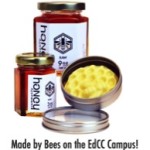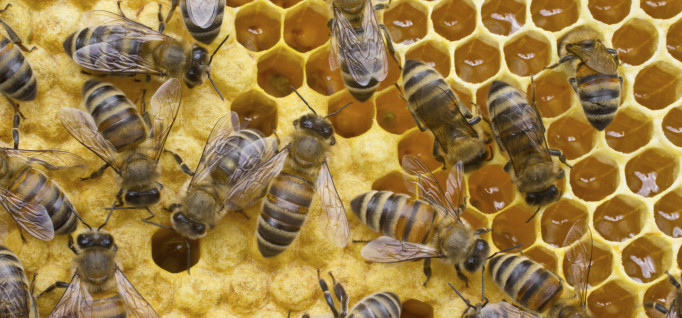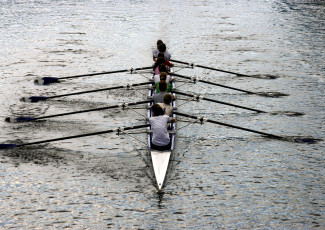An Opportunity for Interdisciplinary Collaboration
By Mary Whitfield
May 5, 2015
In Lynnwood, Washington, bees on campus support Edmonds Community College’s sustainability mission.
If I told you that the Edmonds Community College campus has two honeybee colonies, would you be able to guess where they fit into the college curriculum? You might guess biology, and you’d be right. But would you also guess art, chemistry, engineering, horticulture and culinary arts?
 The bees live in our community garden, where they pollinate the plants that are being cultivated by students in our horticulture program. Bees are naturally and endlessly fascinating — and they’re a perfect fit on our campus, where sustainability is part of our mission. Most importantly, as we’ve discovered, honeybees present a unique opportunity for interdisciplinary collaboration.
The bees live in our community garden, where they pollinate the plants that are being cultivated by students in our horticulture program. Bees are naturally and endlessly fascinating — and they’re a perfect fit on our campus, where sustainability is part of our mission. Most importantly, as we’ve discovered, honeybees present a unique opportunity for interdisciplinary collaboration.
Each year, in the fall, we extract and sell honey to the campus as part of the campus Sustainability Day. It’s always a mad rush for our limited supply, which typically sells out in a few hours. Students get involved in the sale and learn about pricing and marketing the honey. They don’t do it for credit — they do it for the opportunity to learn in real-life market scenarios.
The label for our honey was designed by former graphic design student Ryan Neff. He now includes that work as a portfolio item for his business. Students in our engineering club volunteered to build an extractor, and we no longer have to rent one. This, too, is a valuable portfolio or resume item.
On the academic side, the bees are part of our undergraduate research program. Our chemistry students first extracted and analyzed the pollen in honey produced by the bees and then presented that research at a symposium at the University of Washington. These are experiences that freshmen and sophomores at large universities rarely get. Eventually, we’d like to grow the academic offerings of the honeybee colony and include a course in urban beekeeping as part of our NSF-funded Sustainable Agriculture program.
We didn’t plan for all of this interdisciplinary collaboration, but as the project developed, the opportunities emerged. And that’s just the kind of synergism that community colleges are set up to deliver. Our small size and diverse set of programs make it easy for us to work across traditional disciplinary boundaries. In so doing, we create social, academic and career opportunities for students, all while helping to build a more sustainable campus and world.









